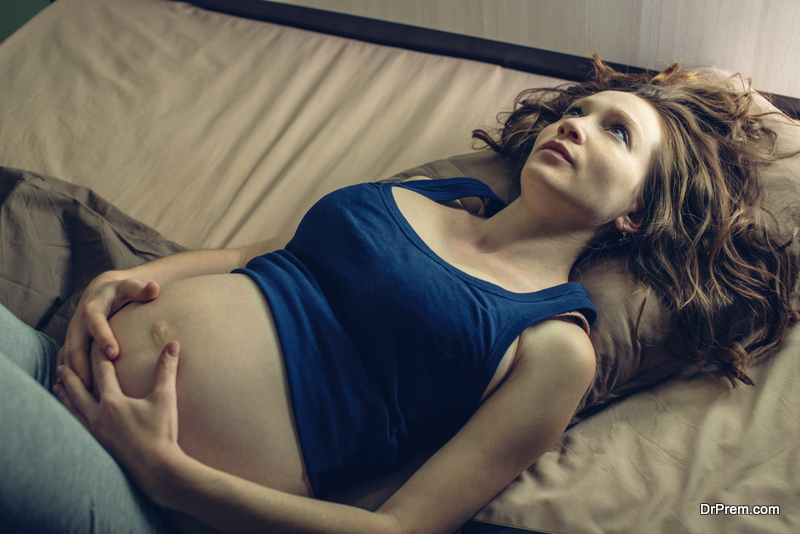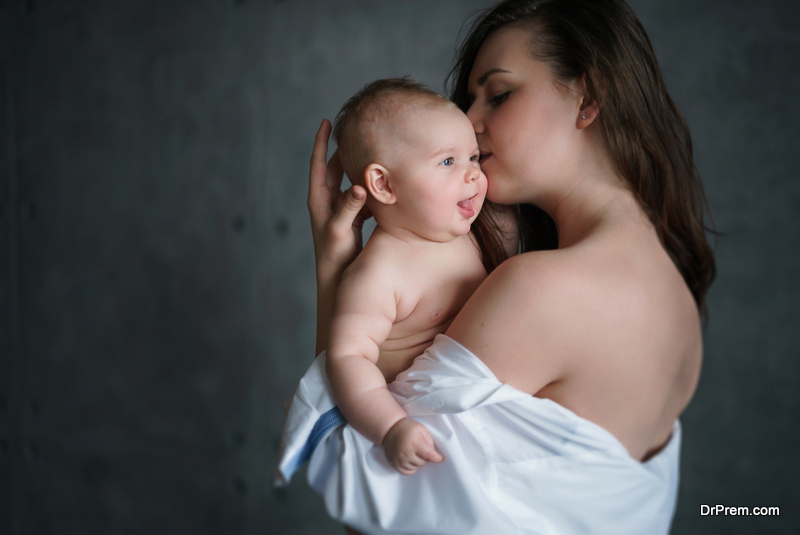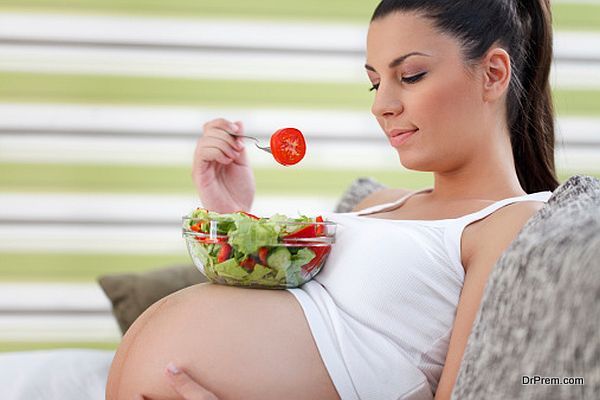For many parents, the climate crisis sparks fear for the future of their children. With temperatures rapidly rising, there’s no telling what the world will look like in the next thirty, fifty, or seventy years.
Parents can do their small part in creating a more sustainable world for their children by thinking about making childcare more environmentally-friendly. It won’t solve the problem entirely, but it will help to instill the right values in your child as they grow.
Here are some tips for making your home infant– and planet-friendly!
1. Buy Less
 Globally, we produce and buy more goods than we need. If you want to create an eco-friendly nursery, think about ways to use fewer resources. If you can, breastfeeding is a great way to buy less (infant formula is expensive!) and to nourish your baby more sustainably. You might also think about using cloth diapers to cut down on plastic in landfills.
Globally, we produce and buy more goods than we need. If you want to create an eco-friendly nursery, think about ways to use fewer resources. If you can, breastfeeding is a great way to buy less (infant formula is expensive!) and to nourish your baby more sustainably. You might also think about using cloth diapers to cut down on plastic in landfills.
Babies outgrow their clothes quickly, and those cute onesies can easily end up cluttering the house or worse, end up in the landfill. Plus, babies and baby clothes are expensive! It costs around $12,980 in the US for all the costs associated with babies. Clothing makes up 6% of that!
Ask friends and family if they have any baby clothes, toys, and supplies they can pass on. Or, shop at secondhand stores and donate or consign those clothes back once your baby has outgrown them. It takes a long time for baby clothes to wear out! If you want, keep a couple of favorite outfits as keepsakes and let go of the others.
2. Support Eco-Friendly Companies
When you do buy new, try to buy from companies that offer sustainable products and care about the environment. There are small companies offering non-toxic cribs made from sustainable wood, organic baby clothing, toys, and sleep sacks. Not only are sustainable products better for the environment, but they’re better for your baby’s health, too!
3. Plan for Plants
While your pediatrician might not approve of a fully plant-based diet for your child as they grow and learn to eat solid foods, it’s a sustainable and healthy way to base your meals. Many children have allergies to animal products like milk, eggs, and shellfish, so it’s a good idea to make most of your meals plant-based, and do some experimentation to find which animal products your child can tolerate.
Even if your baby isn’t yet born, it’s important to think about the future. How will you feed your family sustainably? Which animal products, if any, will you incorporate and how often? These are things to discuss with your child’s doctor before they start weaning.
4. Clear Out Chemicals and Allergens
Intuitively, we know that chemicals have no place in an infant’s environment. The problem is that there are so many products we use on a daily basis that use chemicals. It’s important to consider everything you use in your baby’s environment and see if you can choose safer alternatives that are better for baby and the planet.
When designing your nursery, consider sustainable, easy-to-clean flooring like cork or bamboo. Carpeting can collect dust and allergens and can be really messy with a new baby. You’ll also want to choose eco-friendly paint that avoids highly toxic ingredients.
Once your baby arrives, choose your cleaning and bath products with care and read your labels to avoid harsh chemicals like ammonia, phthalates, and SLS. There are lots of safe and sustainable options available that are still highly effective and gentle.
5. Be Mindful of How Climate Anxiety Can Affect Your Pregnancy
 If you’re worried about increasing your carbon footprint as a parent, then you might be experiencing climate anxiety. While it’s not recognized as a diagnosable mental illness, it’s very real and essentially describes sadness, anxiety, and stress over the climate crisis.
If you’re worried about increasing your carbon footprint as a parent, then you might be experiencing climate anxiety. While it’s not recognized as a diagnosable mental illness, it’s very real and essentially describes sadness, anxiety, and stress over the climate crisis.
As if it wasn’t bad enough on its own, it turns out that climate anxiety could be affecting your pregnancy. Studies have shown that mothers who experience significant anxiety and stress during pregnancy are more likely to give birth prematurely and that there can be lasting impacts on the child as they grow.
It’s not always possible to keep yourself from stressing out about the climate. But if you’re making an effort to live more sustainably, then you’re already doing your part. If you need to see a professional for climate grief or anxiety, don’t hesitate. You and your baby could both benefits.
6. Do the Best You Can
When it comes to sustainability and having children, it’s tempting to try to be perfect. Unfortunately, that attitude can lead to guilt and anxiety since it’s literally impossible to create a perfectly sustainable environment.
Instead of striving for perfection, just do the best you can. Use planet-friendly products whenever you can. Teach your child about sustainability as they grow, and show them how important it is to preserve our world. Raise the next generation to be mindful and respectful of our beautiful planet.
Article Submitted By Community Writer



